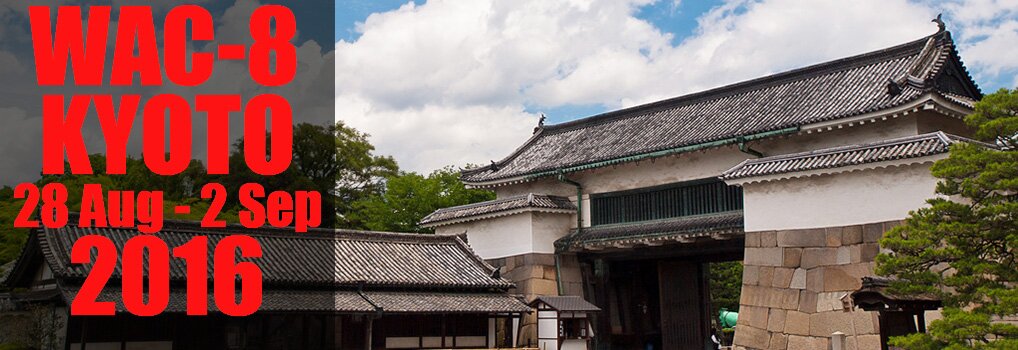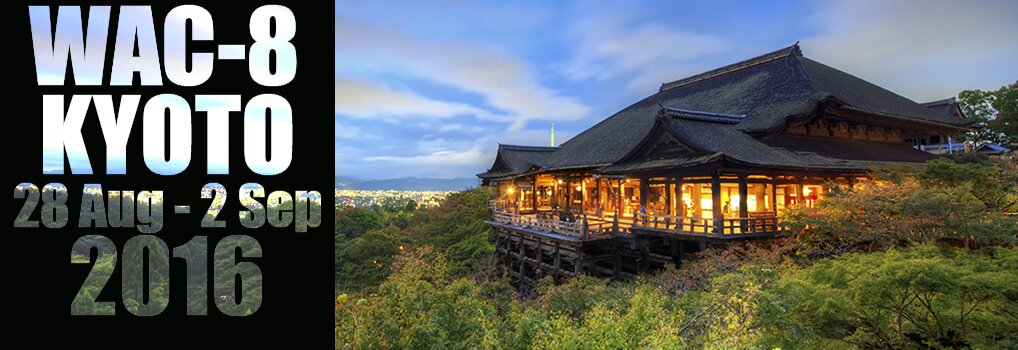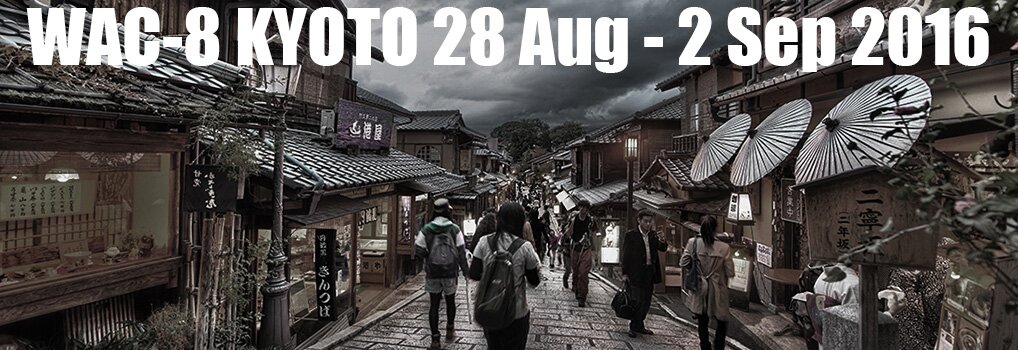| T01 | T02 | T03 | T04 | T05 | T06 | T07 | T08 | T09 | T10 | T11 | T12 | T13 | T14 | T15 |
| Theme list | Session organizers index | Accepted sessions list |
| T13. The Archaeology of Disaster: Exploring the Past for the Future Katsuyuki Okamura, Nathan Schlanger and Makoto Tomii |
|---|
| The history of humankind cannot be discussed without including our response to disasters. Natural hazards and human-caused disasters have altered peoples’ lives, their settlements, and surrounding landscapes in the past and present. Archaeology has identified these disasters along with their contexts, and explored the interactions between humans and nature, and the long-term implications of human activities. More importantly, the investigation of past disasters, particularly earthquakes and tsunami, can be utilized to improve modern disaster management. Another integral matter relating to disasters is heritage, be it cultural or natural. Heritage around the world is exposed to numerous risks resulting from disasters, both natural and those with a human agent. In the past few years the world has witnessed the intentional destruction of heritage due to war, and even more tragically, Japan lost whole communities and their associated histories and heritage in the wake of the 2011 earthquake and resulting tsunami in Tohoku. Every loss makes us appreciate again the meaning of heritage, which includes intangibles, as well as community and culture. Contemporary disasters require from archaeologists unprecedented recovery management methods, technologies, and collaboration. During catastrophes, archaeologists and heritage managers are suddenly faced by a concurrence of serious issues that create both challenges to their field and opportunities for further development of it. At WAC-8 sessions under this theme we will tackle ‘disasters’ from different angles. Session participants will assemble and share wisdom for our future. |
Federal, Tribal and State Government Response: Recovery and Mitigation Efforts in Disasters
Organiser(s): Charles Bello (U.S. Federal Energency Management Agency / USA), Toshihide Ohmi (Ministry of Culture / Japan) and Kazuki Morisaki (Ministry of Culture / Japan)
Type: Symposium
Contact: the.chinese.buffalo(at)gmail.com
Abstract:
This session of individual papers will focus on case studies from a global and cross-cultural perspective that address effective efforts to either protect cultural properties or repair damages to such entities affected by natural disasters or human-influenced hazards (including civil strife and war). Presentations are to provide examples of successful heritage management strategies aimed at recovering from a variety of disaster types and/or subsequent mitigation efforts that protect historic sites from future devastating events. The session will include participants from a variety of international governmental agencies charged with disaster response and recovery. Interdisciplinary collaborations and long-range projects that focus on proactive planning and management and risk analysis are particularly welcome.
Keywords: disasters, hazards, heritage management
Managing endangered cultural heritage sites in Latin America
Organiser(s): Mario Rivera (University of Magallanes / Chile) and Markus Reindel (German Archaeological Institute / Germany)
Type: Symposium
Contact: marivera41(at)gmail.com
Abstract:
The protection of cultural heritage sites in Latin America is challanged by extreme geographical conditions and political situations. Rainfall, and landslides may cause erosions on freestanding ruins. Thunderstorms and tsunamis affect archaological sites located on the Pacific and the Atlantic coasts. Earthquakes and vulcanic eruptions are a constant thread on the geological fault zones. But also human actions are damaging cultural heritage sites in Latin America. Human settlements, especially in urban areas, are expanding and the looting of pre-Hispanic cemeteries is a incontrolable practice.
How do we protect Latin America’s cultural heritage? What kinds of risk management are in place or in development? Protective architecture may prevent the destruction of sensible ruins. But are the financal ressources available? In this symposium we present case studies and best practice examples for cultural heritage protection and management. We will discuss also the importance of creating inventories of endangered sites, using modern technologies of satellite imagery, photogrammetry and laser scanning. We discuss also the importance to develop emergency plans in case of disasters, activities for the involvement of local populations in the protection of cultural heritage, as well as government strategies for cultural heritage protection in Latin America.
Keywords: Cultural heritage, Disaster, Latin America
Voices from Fukushima: Archaeology and Cultural Heritage on the frontline of natural and anthropic disasters
Organiser(s): Yoshio Kikuchi (Fukushima University / Japan) and Nespoulous Larent (Institut national des langues et civilisations orientales / France)
Type: Symposium
Contact: kikuchi(at)ads.fukushima-u.ac.jp
Abstract:
Following the earthquake in Japan on March 2011, problems in salvaging cultural properties and archaeological sites caused by the tidal wave and Fukushima Dai.ichi nuclear power plant explosions have raised important questions of wide applicability. This session aims to share experiences of cultural management in compromised environments and to seek creative solutions. A number of important questions will be discussed. How should cultural heritage be dealt with following natural and cultural disasters? What recurring problems regarding salvage and excavation in affected areas must be taken into account? What are the special needs and concerns for radioactive contamination? How can we ensure cumulative, disaster related knowledge is transmitted to future generations? Due to the severe loss of integrity of the Fukushima power plant, access to the evacuation zone was and continues to be restricted or forbidden, but many archaeological sites and cultural heritage demanded immediate reaction to salvage known assets and excavations are required to accompany reconstruction. We seek papers concerned with problems and solutions raised by archaeology and cultural heritage preservation in similar devastated or threatened locales.
Keywords: natural disasters, cultural heritage management, radioactivity, earthquake, Fukushima
Methodological Approaches to TephroArchaeology
Organiser(s): Gina L. Barnes (University of London / UK) and Tsutomu Soda (Tephro-archaeology Laboratory / Japan)
Type: Forums
Contact: gb11(at)soas.ac.uk
Abstract:
Archaeological excavations in areas heavily covered with tephra from past volcanic eruptions are carried out at numerous places in the world. Japan has a named sub-discipline to demarcate such investigations from those in non-volcanic areas: kazanbai kōkogaku (火山灰考古学), which has been translated as ‘tephroarchaeology’. By focusing on this particular sub-discipline, we hope to build on previous WAC efforts in dealing with disaster, and particularly, volcanic archaeology.
Excavating in tephra, analyzing results and reconstructing past behaviours linked to the eruptions all require some methodologies that differ from the usual. By collating methodological examples from around the world, it may be possible to construct a ‘how to’ manual for archaeology in tephra lands. Some of the questions to be addressed by panelists are: excavation techniques, tephra analysis, environmental recovery, re-colonization histories, and human adaptations.
Keywords: Tephroarchaeology, geoarchaeology, volcanic disasters
Distributed Long-term Observation Networks of the Past’: Using Paleo-Climate and Cultural Resource Data for Understanding the Past, Present and Future of Climate Change
Organiser(s): Marcy Rockman (US National Parks Service / USA), Tom Dawson (St. Andrews University / UK), Junko Habu (Research Institute for Humanity and Nature Institute / Japan), Junzo Uchiyama (Research Institute for Humanity and Nature / Japan), Margo Schwadron (US National Parks Service / USA) and George Hambrecht (University of Maryland, College Park / USA)
Type: Symposium
Contact: Margo_Schwadron(at)nps.gov
Abstract:
Climate change past, present and future is part of an evolving, intertwined natural and human story tied to the landscape. Cultural resources are invaluable, irreplaceable sources of information about past climate change that inform our understanding of how past cultures interacted with variable environments through time. We conceptualize cultural resources data in this sense as ‘Distributed Long-term Observation Networks of Human Ecodynamics in the Past’ (DONOP). This session will arc from examples of paleo-climate and cultural data relevant to modern climate change issues to the processes and challenges of integrating cultural resources data into current global efforts to address climate change. While cultural resources have always been subject to environmental forces, increasing global temperatures, rising sea levels, severe weather and disasters are increasing stresses on sites and sources of data, raising stakes even higher. World archaeologists must act now to plan for, mitigate, and proactively recover archaeological and paleo-climate data before loss from climate change impacts and disasters. This session shares examples, recent progress, and asks: How will we prioritize saving, or sampling of sites before they are lost? How will what we choose to save (and lose) shape how future archaeologists interpret human history? How can we best share climate lessons? What does the past have to offer us in terms of resources for the navigation of the Anthropocene?
Keywords: Paleo-Climate, Climate Change, Resource Management
Catastrophic trends, disaster risk management and sustainable global values from Antiquity
Organiser(s): Serena Massa (Università Cattolica Milano / Italy), Attoui Redha (University Badji Mokhtar / Italy), Susanna Bortolotto (Politecnico di Milano / Italy), Makoto Tomii (Kyoto University / Japan) and Hidetaka Bessho (Higashiosaka city cultural foundation / Japan)
Type: Symposium
Contact: serena.massa(at)unicatt.it
Abstract:
One of the most significant contributions that archaeology can make to present and future societies, thanks to its long-term perspective, is related to the theme of safeguarding of the planet. As we know, landscape processes operate over centuries rather than decades or years, and they may therefore not always be identified through short-term studies. Likewise, the conditions leading to environmental crisis may not be apparent, at least for many prior decades.
Archaeology can help us reveal the antecedents to moments of crisis as they occurred over several previous millennia. This is notably the case with human settlements that are situated in extreme, hostile or resource-scarce environments. It is possible to recognise there successful survival strategies, based on shared knowledge and social practices created and handed down across generations. This session seeks to focus interest on long term processes that relate to the protection of heritage and of landscapes. Much attention will be devoted to the dissemination of knowledge about heritage, as it contributes to promote a sense of identity and wellbeing among present-day societies and communities, and as it strengthens the protection of national heritage for future generations. With case studies related to past disasters including floods, drought, tsunami and earthquake, this session will illustrate ongoing links between archaeological research, landscapes protection and the possibility of sustainable futures.
Keywords: archaeology, landscapes protection, heritage and future generations




